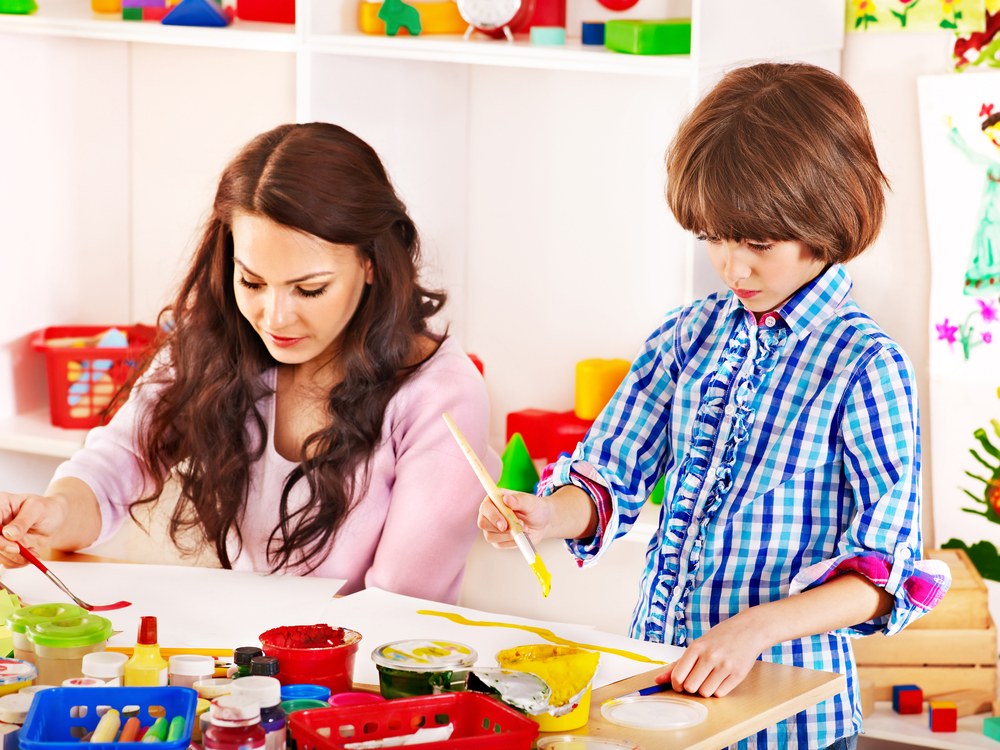Handwriting practice Extra Challenge Worksheets for Ages 4-5
6 filtered results
-
From - To
Enhance your child's writing skills with our Handwriting Practice Extra Challenge Worksheets designed specifically for ages 4-5. These engaging printables not only promote fine motor skills but also foster letter recognition and writing fluency in a fun and interactive way. Each worksheet is tailored to challenge young learners, helping them master their penmanship while boosting their confidence. Featuring colorful illustrations and exciting activities, our worksheets keep kids motivated as they practice tracing, writing, and forming letters. Perfect for parents and educators alike, these extra challenges provide an essential resource for reinforcing handwriting skills in early education settings. Download now and watch your child thrive!


Letter R Tracing Page


Letter X Tracing Page
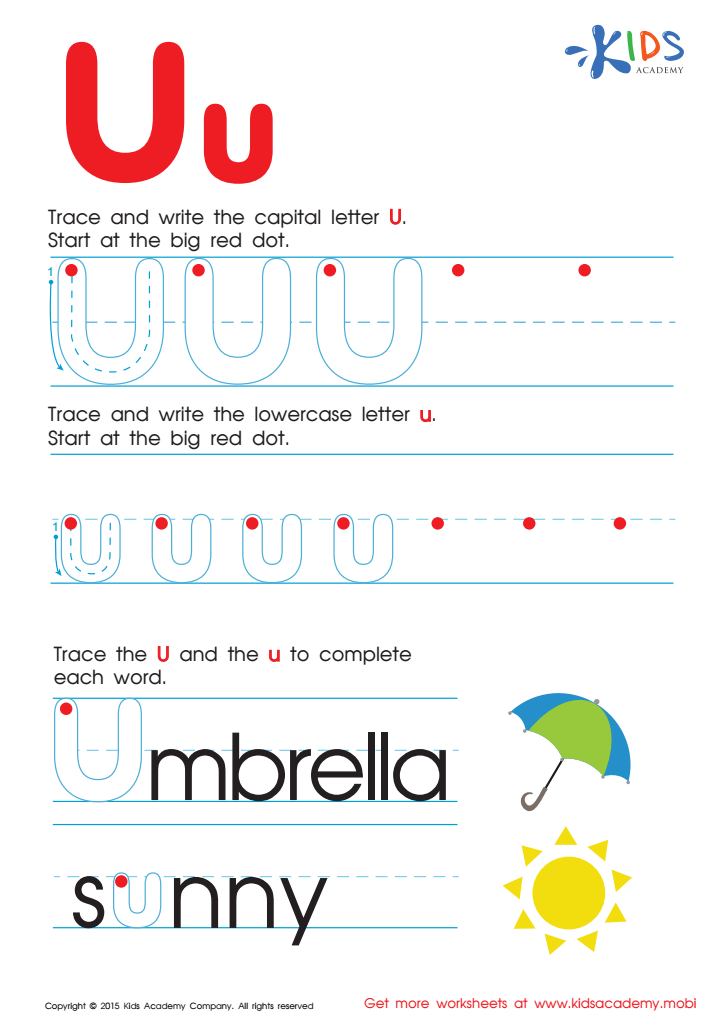

Letter U Tracing Page
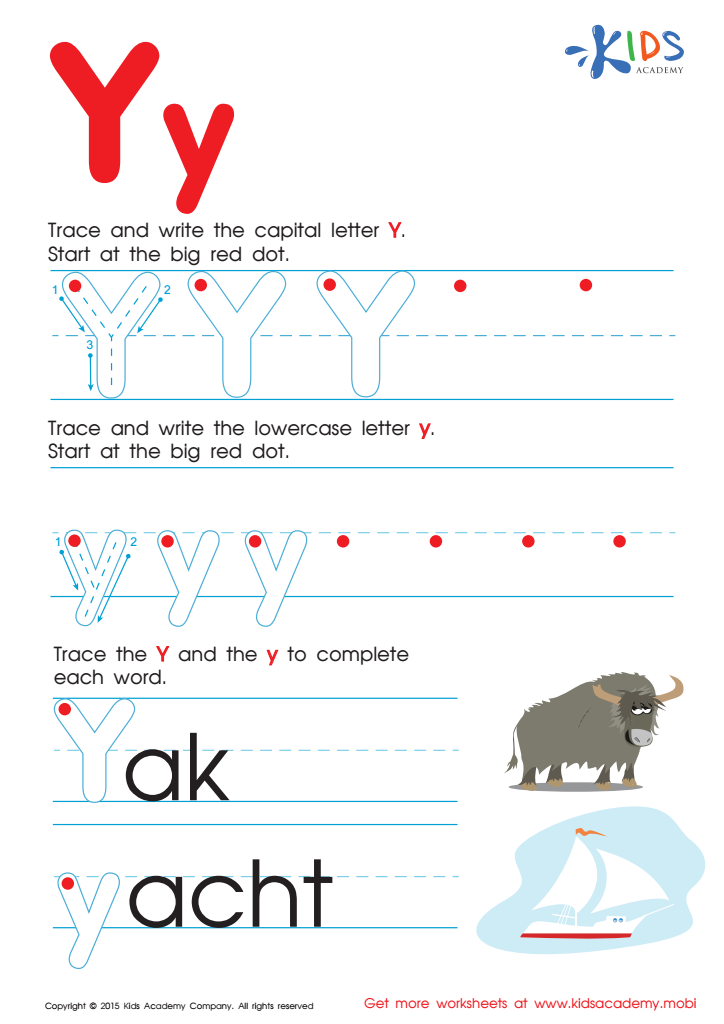

Letter Y Tracing Page
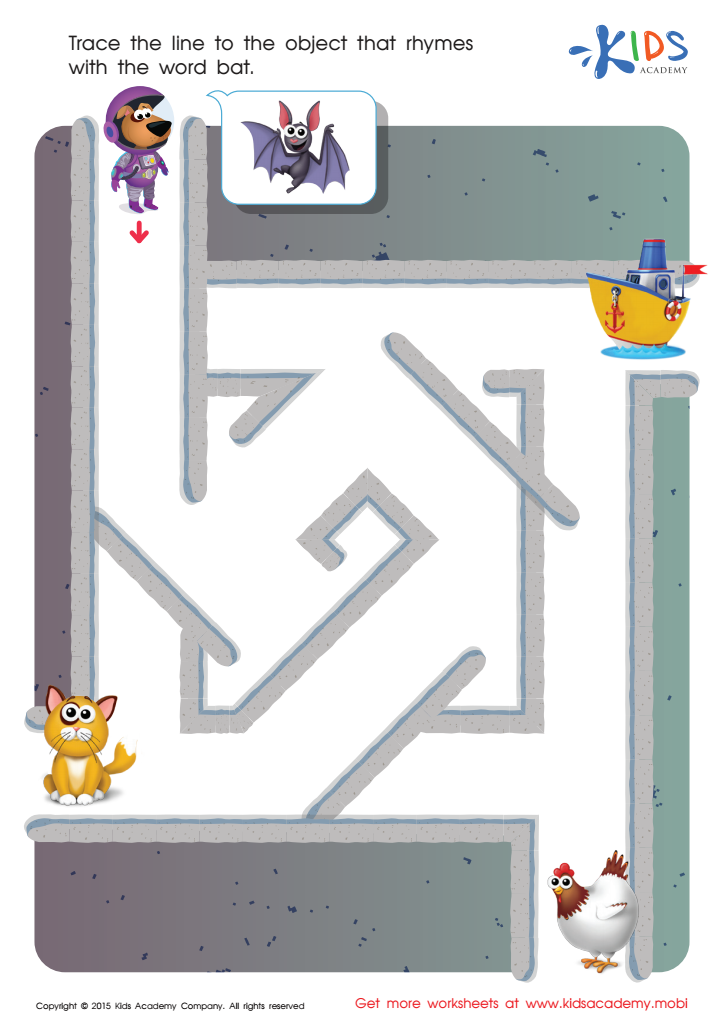

Bat Rhyming Words Worksheet
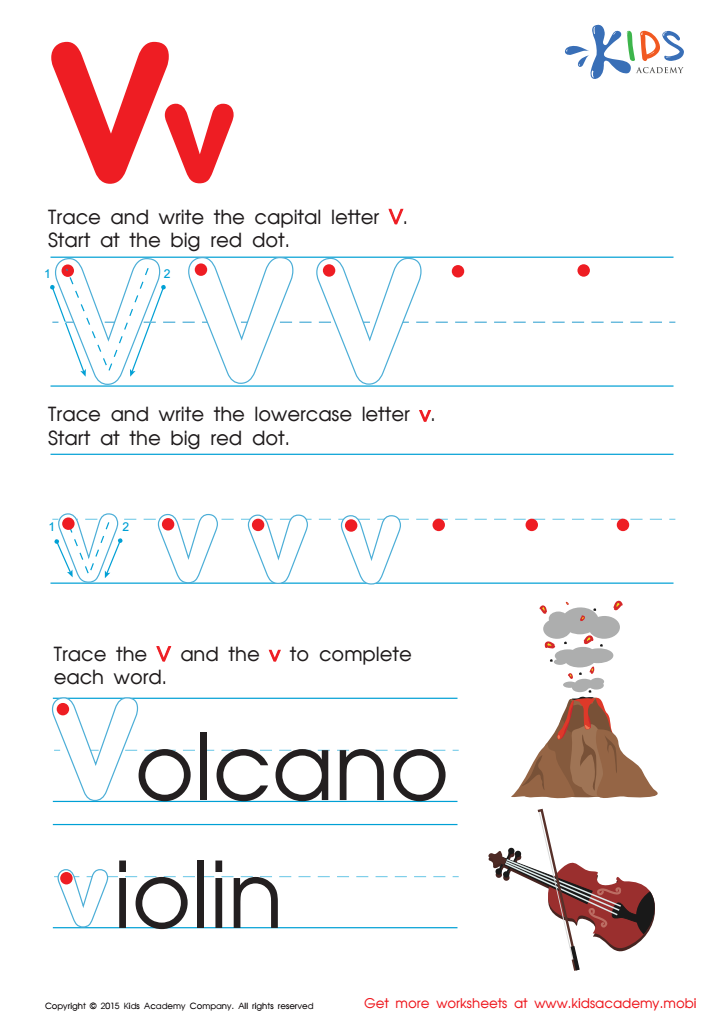

Letter V Tracing Page
Handwriting practice is a crucial component of early childhood education, especially for ages 4-5. During this developmental stage, children are not only learning to form letters but also developing fine motor skills essential for future academic tasks. Engaging in regular handwriting practice helps children improve hand-eye coordination, dexterity, and control, which are foundational for various activities beyond writing, such as drawing and even basic self-care skills like buttoning shirts.
Moreover, handwriting enhances cognitive development. As children practice writing letters and words, they reinforce their understanding of phonetics and spelling, making early reading more achievable. This correlation between writing and reading lays a strong foundation for literacy skills, which are critical as children progress through school.
Additionally, handwriting can foster creativity and expression. Children can articulate their thoughts and emotions better through writing, promoting their social-emotional development and confidence. In an increasingly digital world, cultivating a love for handwriting can help children appreciate the significance of traditional literacy skills.
Ultimately, investing time in handwriting practice not only nurtures essential academic skills but also equips children with vital tools for effective communication and personal expression throughout their lives. Thus, parents and teachers should prioritize and encourage this enriching practice.
 Assign to My Students
Assign to My Students








